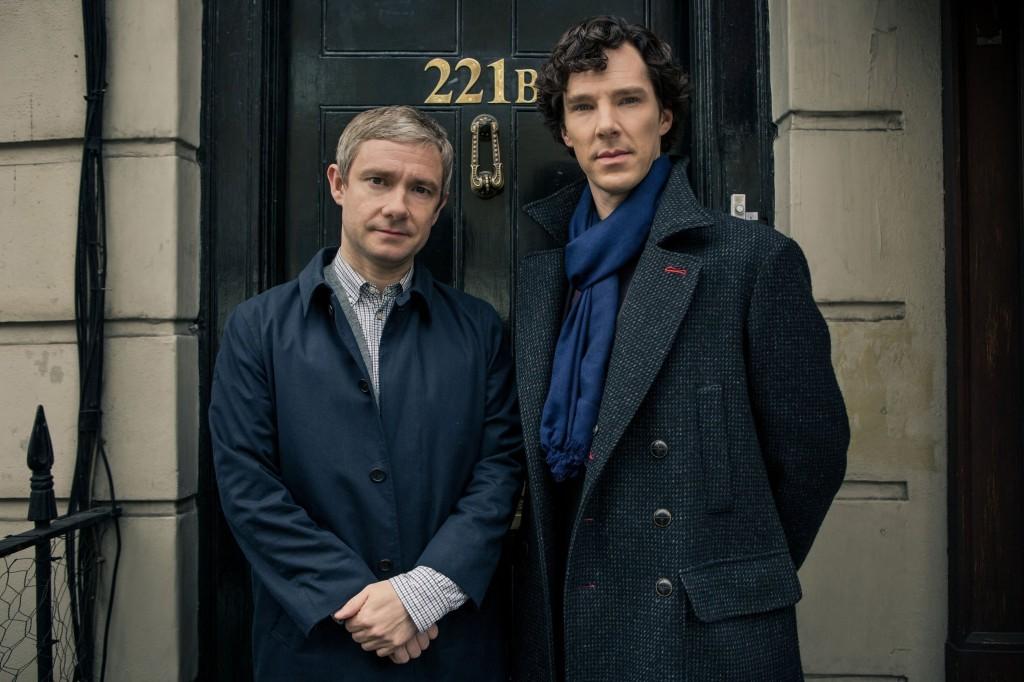After being off the air for almost two years, BBC’s “Sherlock” returned in full swing this January (Reader advisory: I love “Sherlock.” I think the cinematography is stunning, the writing is brilliant and the actors are beautiful).
The first episode of season three, “The Empty Hearse,” is loosely based on Arthur Conan Doyle’s “The Empty House.” The episode picks up two years after Sherlock Holmes (Benedict Cumberbatch) faked his own death at the end of the season two finale, “The Reichenbach Fall.” Since the airdate, “Sherlock” fans attempted (obsessively, in some cases) to solve the mystery of how Sherlock survived. The first episode opens with an “explanation,” which was then revealed to be simply a theory of someone who wished Sherlock not to be dead. And so, we’re swept back into the brilliant writing of Mark Gatiss.
It is then revealed that Sherlock had spent the past two years infiltrating Moriarty’s criminal network before his brother, Mycroft (Gatiss), finds him and brings him back to England. Sherlock decides to reveal himself to John Watson (Martin Freeman) in the most socially inappropriate (and therefore hilarious) manner: by disguising himself as a French waiter just as John hopes to propose to his girlfriend. John’s reaction is utterly priceless as he physically attacks Sherlock several times. Sherlock hopes to enlist John in his latest case, so long as John shaves off the mustache he’s grown in Sherlock’s absence. According to Mycroft, London is being threatened by an underground terrorist organization. The main mystery of the episode, a bomb in an underground train carriage, does not end up being the main plot point. Instead, the show focuses on Sherlock’s relationships with other characters and how and why he faked his death.
Gatiss and the other show creator, Steven Moffat, wait to reveal to viewers how Sherlock survived until well into the episode. The episode shows several possible explanations throughout, each with their own nods to fan predictions. This shows that the writers actually do pay attention to fans’ thoughts and predictions. Don’t let up fan fiction writers: People are listening! This is particularly evident with a homoerotic version of events and a version with Molly Hooper as Sherlock’s leading lady, all complete with plenty of action. The truth turns out to be relatively simple, just perfectly timed. Detective Anderson said the truth is “somewhat disappointing,” to which Sherlock responded, “Everyone is a critic.” This is reflective of the impossible task the writers had after the season two cliffhanger.
One of the most interesting parts of “The Empty Hearse” was Sherlock’s character development. In one minor plot point, Sherlock deduces that a woman’s stepfather was pretending to be her online boyfriend in order to obtain her money. Sherlock, genuinely upset at the cruelty the man showed his stepdaughter, lashed out at him in anger. The Sherlock introduced in the first season would not have had this level of empathy for another person. Secondly, when Sherlock is introduced to Molly’s new boyfriend, he leaves and tells John he isn’t going to say anything. This parallels an earlier episode in which, upon meeting Molly’s earlier boyfriend, he simply says, “Gay.” Sherlock has learned to take other people into consideration and be slightly less sociopathic.
The episode ended perfectly as Sherlock puts on his deerstalker and says, “Time to go and be Sherlock Holmes,” as he and John face the press. It also does not look like we’ve seen the last of the villain behind the attempted train bombing.
Email: [email protected]
Twitter: @molliecahillane

